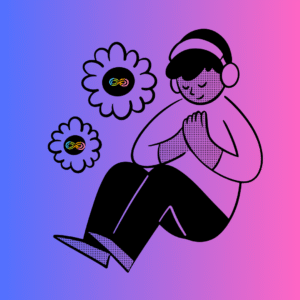
Now, I may be wrong, but I know I am frustrated. Why are there no African novels with canonically autistic characters? (Do we even have those with autistic-coded characters?)
Canonically autistic characters are characters who are explicitly identified by the author or within the storyverse as having autism. Autistic-coded characters are characters who exhibit autistic traits but are not explicitly identified as autistic.
I was conducting my research for today’s post and had to admit this fact to myself: there isn’t any African novel that has autistic characters, talk less of an autistic protagonist. Why is that? Now, I know autism is a relatively understudied topic in the African clime, but I had assumed a few good suggestions would pop up for the curious.
A book that constantly comes up in search is Candice Iloh’s upcoming children’s book, Emeka, Eat Egusi!, which outrightly mentions that Emeka is autistic. See the word ‘upcoming’ up there? This book isn’t even on our shelves yet.
For books with neurodivergent characters, the situation may not be as dire, but is honestly still poor. First on the list is Akwaeke Emezi’s Freshwater, which is a refreshingly strange biographical novel about an ogbanje with split personalities. Then there is Nnedi Okorafor’s Binti, with the character said to exhibit signs of neurodivergence.
Note that both books do not outrightly state that their characters are neurodivergent, and neurodivergence is not the focus of the stories.
I thought we lacked novels in the speculative fiction genre and horror genre, but maybe there are topics we should be talking about that we are not talking about.
The topic of autism has become prevalent in the media in recent years (I mean in the 21st century, what with the increasing awareness in Western society and the availability of information to interested people), but it seems like the fiction (novels) space is still lagging on the matter. I find this concerning.
We know the impact of media on society. How that we perceive media, including articles and movies, to be a reflection of society and hence form our opinions and attitudes from what we consume through these channels.
Most of us have never travelled out of our country or state and instead learn about the world out there through movies and novels or the good ol’ ChatGPT. The opinions we form are mostly consistent with general perception, so we learn to rely on the information we find from these entertaining sources.
The issue with this is that almost everyone has access to the internet and the people who produce movies are not necessarily experts on the topics their movies are concerned with. Misrepresentations and stereotypes can and are propagated through these means.
Not many people have met an autistic person, and the society’s majority is not interested in medical conditions that do not directly affect them or pose a threat to their health and so do not go seeking in-depth knowledge on these topics. For this reason, most people learn about Autism Spectrum Disorder through the media.
Is the media the best means to learn about this condition, though? The same media that panders to the people with the most power and the most money to spend? I’m not saying all media platforms are corrupt, just that a nice place to find stereotypes and one-dimensional news would be the media, aka, news channels, movies, and newspapers.
How exactly is autism being represented in the African fiction space?
Answer: It is not.
I was going to write about the representation of autism in the African fiction space, and check if it was being represented properly and without harmful stereotyping, but it seems I was running faster than my shadow: there is no negative representation to warn against or a positive representation to applaud because there is no representation whatsoever.
So, hey, if you are a writer and you’ve been thinking of what to write about, and you have a good understanding of the spectrum or are ready to learn, maybe consider giving us an autistic character in all their nuanced and neurodivergent glory. There are people out there who would love to read that work—autistic people who need to see themselves represented properly in novels, their friends or caregivers and the average Paul who then may not discriminate against the next autistic person they meet.
I don’t know it all, and I may not be as good a researcher as I think I am, so if you know of any African novel (from any African country) with canonically autistic characters or protagonist, drop the title in the comment’s section below. Thank you.
Till we meet again!
Ciao!

